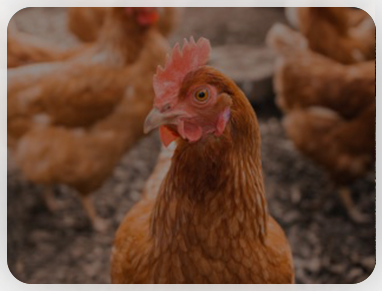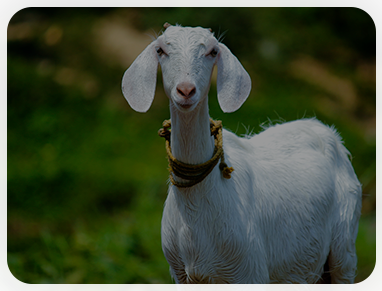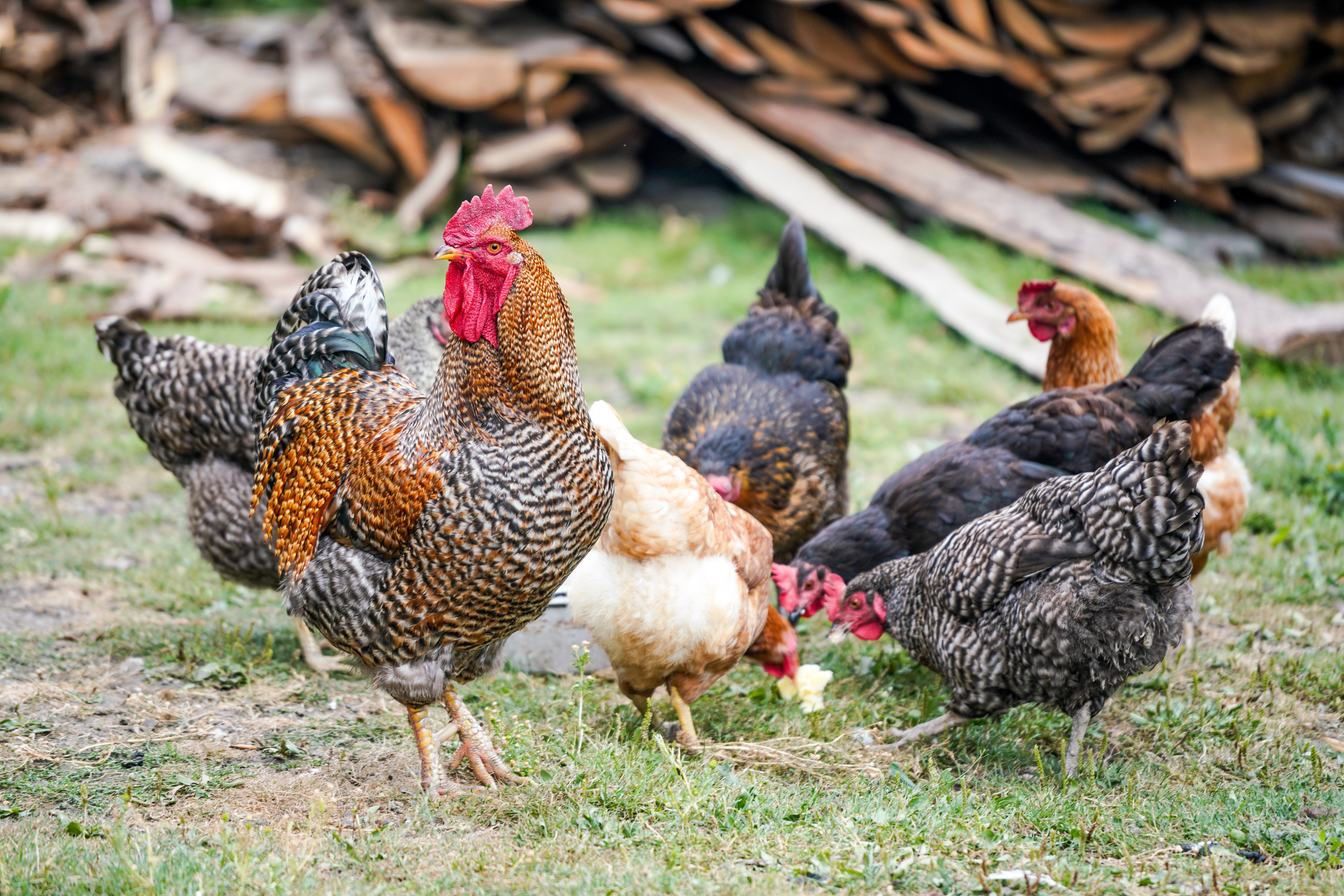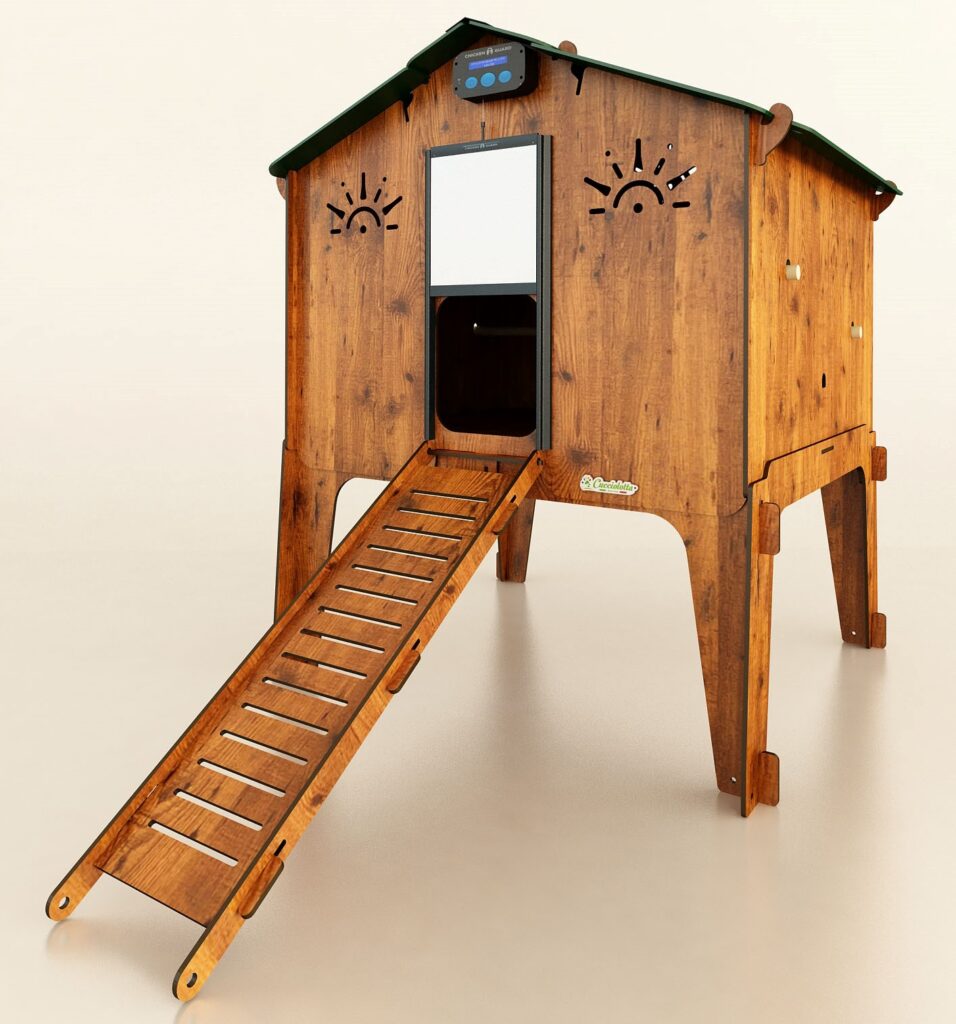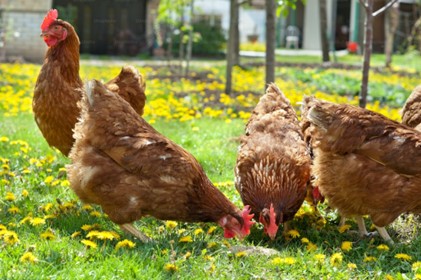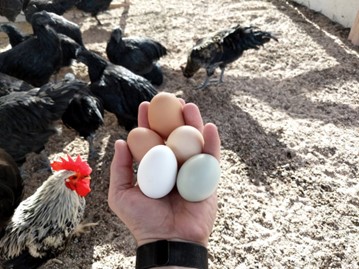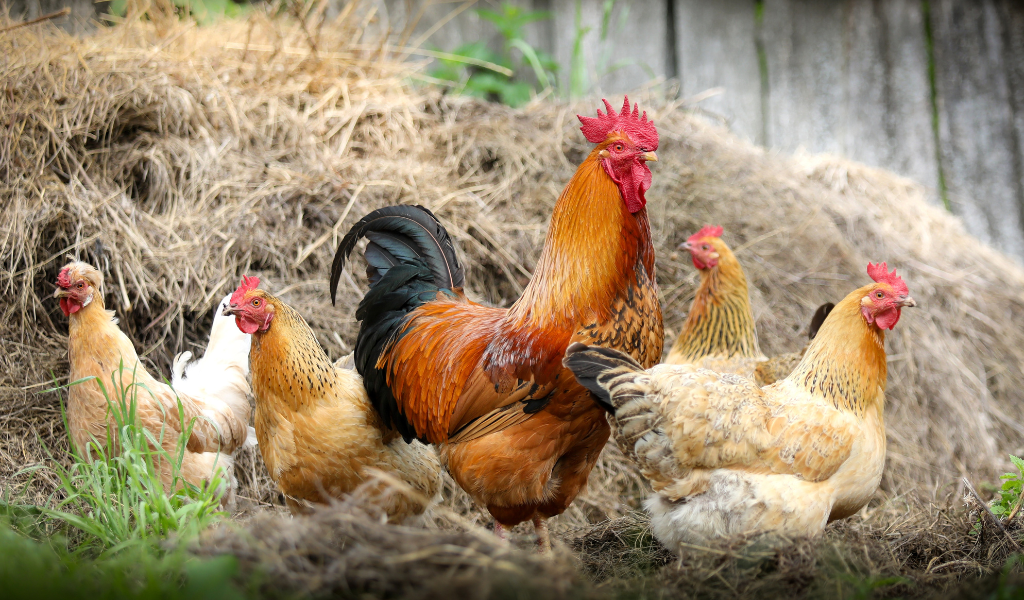I raised chicken coops they protect chickens from predators. If you live in a rural area, animals such as foxes and raccoons are likely to roam in search of food. Animals like these are not afraid of humans, so they won't hesitate to enter your chicken coop if given the opportunity. THE raised chicken coops make it difficult for predators to access chickens by providing them with an obstacle course (the walls) and making it more difficult for them to climb onto the roof of the house.
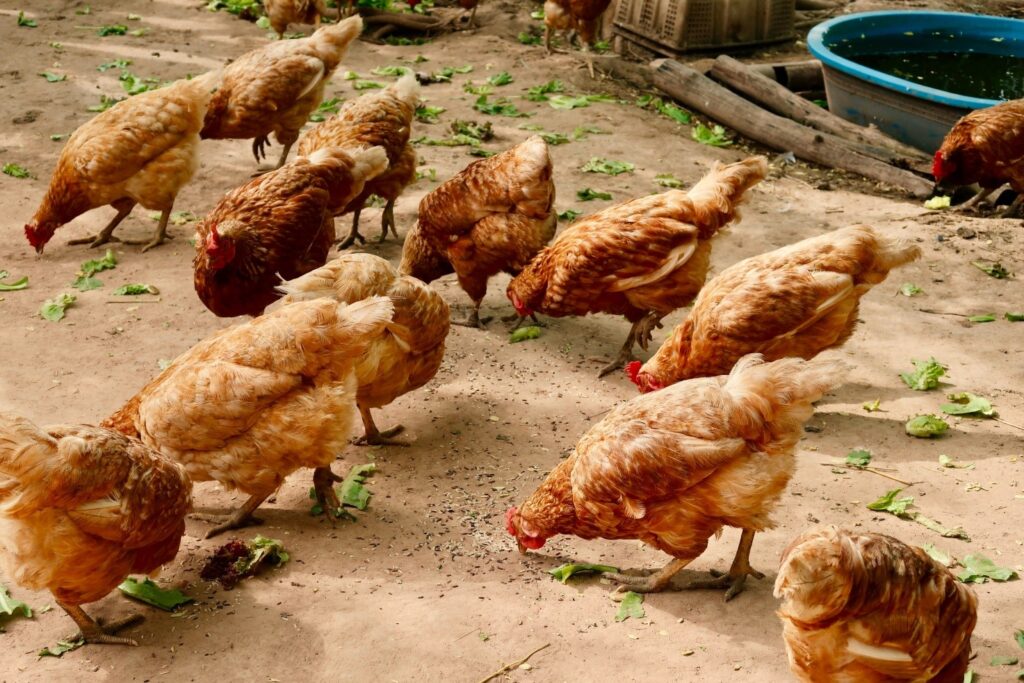
Isolated environment with raised chicken coops
Raised chicken coops are ideal for keep chickens cool in summer and warm in winter. Chickens are sensitive to heat, cold and humidity, all of which can cause health problems. The ideal temperature for a chicken coop is between 18 ° C (64 ° F) and 30 ° C (86 ° F), so it's important to provide a suitable environment all year round.
Some farmers create an air-conditioned environment similar to the outdoor one by installing insulation on the walls of the house, while others install fans or heaters inside the house. In any case, it is necessary install adequate ventilation to avoid ending up with a large number of chickens that have died from overheating or freezing!
The space below the raised chicken coop will become where your feathered friends can take shelter in case of rain or from the sun, without having to re-enter the house every time.
Guaranteed quality with HPL laminate
Cucciolotta houses they are made of HPL laminate, a layered material that is much more resistant and durable than wood, the typical material used for chicken coops and stables. THE advantages of using HPL for your chicken coop there are many. HPL is a durable material that can withstand all weather conditions, including atmospheric agents and strong winds. In addition to its strength, HPL is also light and easy to work with. Its light weight makes it easier to move around when you need to clean the barn or add more shavings or bedding if they get dirty.
HPL is easy to clean, just use soap and water: there is no risk that cracks or holes are created, nor that the water is absorbed and causes the walls to rot (which could instead happen with wood). An HPL chicken coop is also a climate-controlled environment. This means that your farm chickens will have shelter even in extreme temperatures, being protected from heat or cold stress.
Raised chicken coops: how to protect your hens from predators
If you are a chicken owner, their safety and welfare are probably among your top concerns. Predators like foxes, coyotes and birds of prey they can pose a constant threat to your pets, but with a raised chicken coop you can offer them shelter sure e safe.
Predators often use different techniques to attack the chicken coop and the hens inside it. For example, dogs or coyotes may dig in the ground to create a gap under the fence, while raccoons or foxes may climb the walls of the chicken coop or dig to reach the chickens from above. The raised chicken coop, therefore, hinders these attack attempts by predators, since their access is prevented by the elevated structure.
There are several methods you can take to ensure the safety of your hens. First, it is essential to own a chicken coop strong e sure, equipped with electrified nets and thick meshes to prevent the access of predators. Additionally, you can install infrared lights or motion sensors to deter nocturnal animals.
The secrets to a successful raised chicken coop: space, insulation, cleaning and games
But worrying only about the safety of the hens is not enough: when you get a new raised chicken coop to house the hens, there are some things to consider to ensure that our animals are comfortable and produce eggs of quality.
Firstly, it is important that the chicken coop is large enough to house all the hens we have. Each animal needs about 30-40 cm of linear space to stay comfortably inside the chicken coop. Furthermore, it is necessary to ensure adequate space for the nest and perches, so that the hens can rest and lay their eggs in a comfortable way.
It is also advisable to have a protected outdoor area where the hens can graze freely during the day. In this way, the hens will be able to move freely, enjoy the sunlight and open spaces, and they will be more Healthy relationships e happy.
Secondly, it is important that the chicken coop is well isolated thermally. Chickens are animals sensitive to the temperature and their well-being depends on the internal temperature of the chicken coop. Therefore, it is important to ensure that it is well insulated to prevent it from overheating in the summer or becoming too cold in the winter. In this way, the hens will be able to regular their body temperature naturally and will live in an environment comfortable.
Thirdly, it is important to provide hens with an adequate amount of water e food. Chickens need water fresh e clean each day and an adequate amount of feed to produce quality eggs.
Furthermore, a good practice to ensure the well-being of our animals is to provide them with games and objects that stimulate their natural Curiosity e organisers' activities. For example, some can be added to the chicken coop balls, blocks to beat or hanging games to make them jump and have fun. This not only improves their quality of life but also helps prevent destructive behavior such as cannibalism or breaking down the hierarchy within the group. Additionally, providing hens with an opportunity for physical activity can also improve their overall and psychological health.

